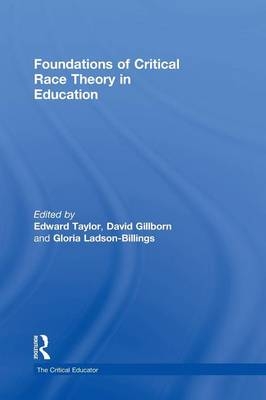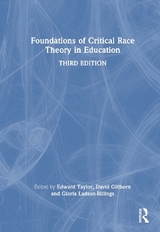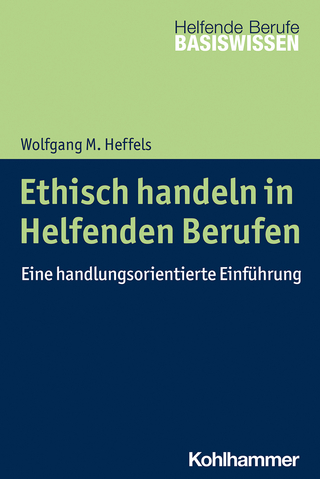
Foundations of Critical Race Theory in Education
Routledge (Verlag)
978-1-138-81944-3 (ISBN)
- Titel erscheint in neuer Auflage
- Artikel merken
The emergence of Critical Race Theory (CRT) marked a pivotal moment in the history of racial politics within the academy and powerfully influenced the broader conversation about race and racism in the United States and beyond. Comprised of articles by some of most prominent scholars in the field of CRT, this groundbreaking anthology is the first to pull together both the foundational writings and more recent scholarship on the cultural and racial politics of schooling. The collection offers a variety of critical perspectives on race, analyzing the causes, consequences and manifestations of race, racism, and inequity in schooling. Unique to this updated edition are a variety of contributions by key CRT scholars published within the last five years, including an all-new section dedicated to the intersections of race and dis/ability within contemporary schooling. Each section concludes with a set of questions and discussion points to further engage with the issues discussed in the readings. This revised edition of a landmark publication documents the progress to date of the CRT movement and acts to further spur developments in education policy, critical pedagogy, and social justice, making it a crucial resource for students and educators alike.
Edward Taylor is Vice Provost and Dean of Undergraduate Academic Affairs and Professor of Educational Leadership and Policy Studies at the University of Washington, Seattle. David Gillborn is Professor of Critical Race Studies at the University of Birmingham and Editor-in-Chief of the international journal Race, Ethnicity and Education. Gloria Ladson-Billings is the Kellner Family Chair in Urban Education and Professor of Curriculum and Instruction at the University of Wisconsin-Madison.
Foreword
Series Editors’ Introduction
Preface to the Second Edition
The Foundations of Critical Race Theory in Education: An Introduction
Edward Taylor
Part One: Critical Race Theory in Education
1. Just What is Critical Race Theory and What’s it Doing in a Nice Field Like Education?
Gloria Ladson-Billings
2. Who’s Afraid of Critical Race Theory?
Derrick A. Bell
3. Education Policy as an Act of White Supremacy: Whiteness, Critical Race Theory and Education Reform
David Gillborn
Questions and Discussion Points for Part One
Part Two: Racism and the Everyday World of Education
4. Why is the School Basketball Team Predominantly Black?
Carl E. James
5. An Apartheid of Knowledge in Academia: The Struggle over the ‘Legitimate’ Knowledge of Faculty of Color
Dolores Delgado Bernal & Octavio Villapando
Questions and Discussion Points for Part Two
Part Three: Affirmative Action
6. The "We’ve Done Enough" Theory of School Desegregation
Mark V. Tushnet
7. Affirmative Action as a Majoritarian Device: Or, Do You Really Want to be a Role Model?
Richard Delgado
8. Critical Race Theory and Interest Convergence in the Backlash against Affirmative Action: Washington State and Initiative 200
Edward Taylor
Questions and Discussion Points for Part Three
Part Four: Critical Race Research Methodology in Education
9. Critical Race Methodology: Counter- Storytelling as an Analytical Framework for Educational Research
Daniel G. Solórzano and Tara J. Yosso
10. What’s Race Got to Do with It? Critical Race Theory’s Conflicts With and Connections to Qualitative Research Methodology and Epistemology
Laurence Parker and Marvin Lynn
Questions and Discussion Points for Part Four
Part Five: Race and Dis/Ability
11. Toward an Interdisciplinary Understanding of Educational Equity and Difference: The Case of the Racialization of Ability
Alfredo J. Artiles
12. The Song Remains the Same: Transposition and the Disproportionate Representation of Minority Students in Special Education
Gregg D. Beratan
13. Dis/ability Critical Race Studies (DisCrit): Theorizing at the Intersections of Race and Dis/ability
Subini Ancy Annamma, David Connor and Beth Ferri
Questions and Discussion Points for Part Five
Part Six: Intersections: Gender, Class, and Culture
14. Mapping the Margins: Intersectionality, Identity Politics, and Violence against Women of Color
Kimberlé Williams Crenshaw
15. Ain’t I a Woman? Revisiting Intersectionality
Avtar Brah and Ann Phoenix
Questions and Discussion Points for Part Six
Part Seven: Intersections: White Supremacy and White Allies
16. The Color of Supremacy: Beyond the Discourse of ‘White Privilege’
Zeus Leonardo
17. Teaching White Students about Racism: The Search for Whites Allies and the Restoration of Hope
Beverly Daniel Tatum
Questions and Discussion Points for Part Seven
Part Eight: Critiques of Critical Race Theory
18. Some Critical Thoughts on Critical Race Theory
Douglas E. Litowitz
19. Telling Stories Out of School: An Essay on Legal Narratives
Daniel A. Farber and Suzanna Sherry
20. On Telling Stories in School: A Reply to Farber and Sherry
Richard Delgado
Questions and Discussion Points for Part Eight
Afterword
21. Critical Race Theory – What It Is Not!
Gloria Ladson-Billings
Permissions
Index
| Erscheint lt. Verlag | 10.9.2015 |
|---|---|
| Reihe/Serie | The Critical Educator |
| Zusatzinfo | 4 Tables, black and white; 1 Illustrations, black and white |
| Verlagsort | London |
| Sprache | englisch |
| Maße | 178 x 254 mm |
| Gewicht | 861 g |
| Themenwelt | Sozialwissenschaften ► Ethnologie |
| Sozialwissenschaften ► Pädagogik ► Allgemeines / Lexika | |
| Sozialwissenschaften ► Pädagogik ► Bildungstheorie | |
| Sozialwissenschaften ► Soziologie | |
| ISBN-10 | 1-138-81944-1 / 1138819441 |
| ISBN-13 | 978-1-138-81944-3 / 9781138819443 |
| Zustand | Neuware |
| Haben Sie eine Frage zum Produkt? |
aus dem Bereich



